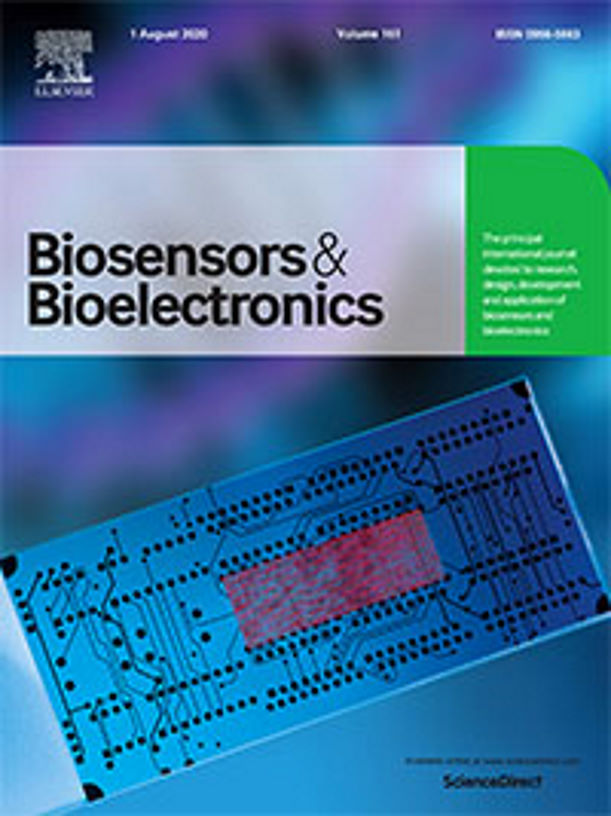ŁUKASZ RICHTER, PAWEŁ ALBRYCHT, MONIKA KSIĘŻOPOLSKA-GOCALSKA, EWA POBOŻY, ROBERT BACHLIŃSKIC, VOLODYMYR SASHUK, JAN PACZESNY, ROBERT HOŁYST
The majority of analytical chemistry methods requires presence of target molecules directly at a sensing surface. Diffusion of analyte from the bulk towards the sensing layer is random and might be extremely lengthy, especially in case of low concentration of molecules to be detected. Thus, even the most sensitive transducer and the most selective sensing layer are limited by the efficiency of deposition of molecules on sensing surfaces. However, rapid development of new sensing technologies is rarely accompanied by new protocols for analyte deposition. To bridge this gap, we propose a method for fast and efficient deposition of variety of molecules (e.g. proteins, dyes, drugs, biomarkers, amino acids) based on application of the alternating electric field. We show the dependence between frequency of the applied electric field, the intensity of the surface enhanced Raman spectroscopy (SERS) signal and the mobility of the studied analyte. Such correlation allows for a priori selection of parameters for any desired compound without additional optimization. Thanks to the application of the electric field, we improve SERS technique by decrease of time of deposition from 20 h to 5 min, and, at the same time, reduction of the required sample volume from 2 ml to 50 μl. Our method might be paired with number of analytical methods, as it allows for deposition of molecules on any conductive surface, or a conductive surface covered with dielectric layer.

